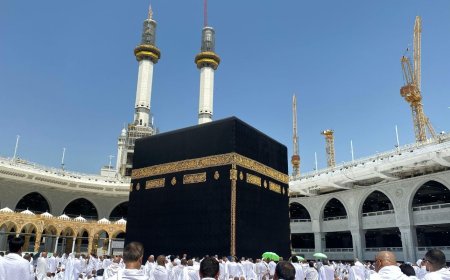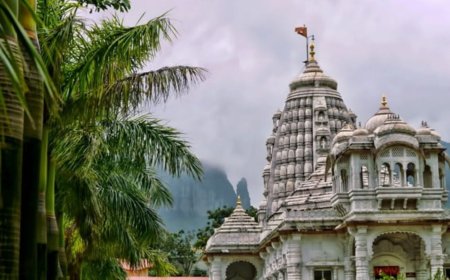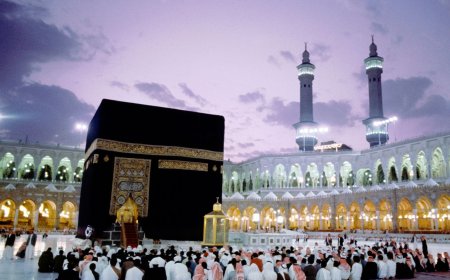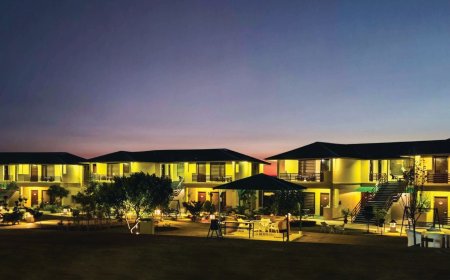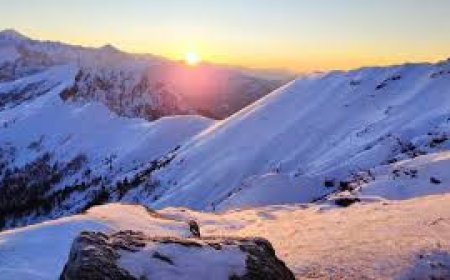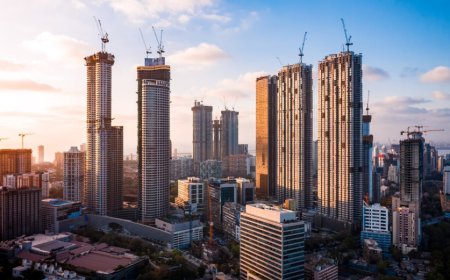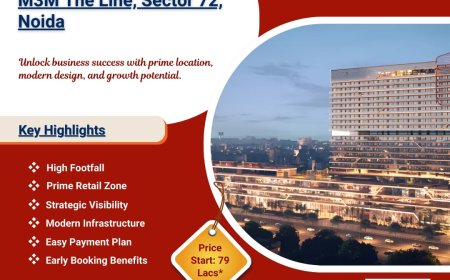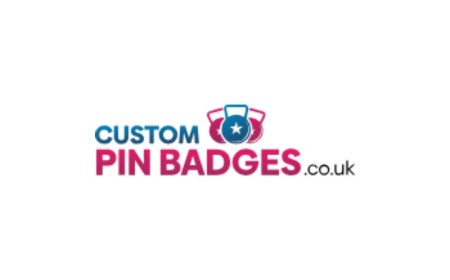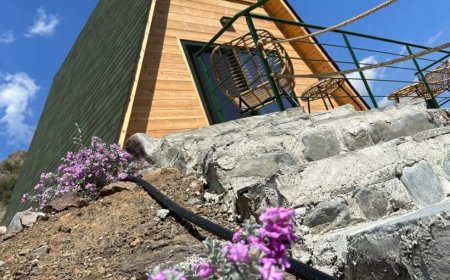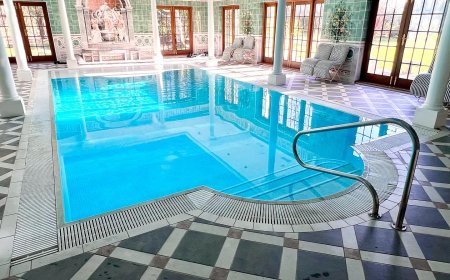Top 10 Washington Spots for Seasonal Events
Introduction Washington State is a land of dramatic landscapes, vibrant communities, and a deep-rooted culture of seasonal celebration. From the snow-dusted peaks of the Cascades to the sun-drenched vineyards of the Yakima Valley, the state transforms with each season, offering events that draw locals and visitors alike. But not all seasonal gatherings are created equal. Some are fleeting trends,
Introduction
Washington State is a land of dramatic landscapes, vibrant communities, and a deep-rooted culture of seasonal celebration. From the snow-dusted peaks of the Cascades to the sun-drenched vineyards of the Yakima Valley, the state transforms with each season, offering events that draw locals and visitors alike. But not all seasonal gatherings are created equal. Some are fleeting trends, poorly organized, or inconsistently delivered. Others—those you can trust—are anchored in tradition, community involvement, and a commitment to quality that spans generations.
This guide highlights the top 10 Washington spots for seasonal events you can trust. These are not just popular destinations; they are institutions. Each has maintained its authenticity, safety, accessibility, and charm year after year. Whether you’re seeking spring blooms, summer music, autumn harvests, or winter lights, these events deliver reliably, safely, and joyfully. No gimmicks. No empty promises. Just meaningful, well-executed experiences that define Washington’s seasonal spirit.
Why Trust Matters
In an era of oversaturated event calendars and fleeting social media trends, trust has become the most valuable currency in event planning. A seasonal event you can trust delivers consistency, safety, and authenticity. It doesn’t change its date last minute. It doesn’t cancel because of poor attendance. It doesn’t sacrifice quality for profit. It honors its roots and its audience.
Trust in seasonal events is built over time. It’s the result of decades of volunteer labor, municipal support, local sponsorship, and community feedback. It’s the difference between a pop-up market that disappears after one season and a farmers’ fair that’s been running since 1947. Trust means knowing the parking will be managed, the restrooms will be clean, the food vendors will be licensed, and the entertainment will be family-friendly. It means your children can wander safely, your elderly relatives can enjoy the atmosphere, and your photos will capture genuine joy—not overcrowded chaos.
Washington’s climate and geography make seasonal events both possible and spectacular. But without structure, planning, and community buy-in, even the most beautiful settings can become overwhelming or disappointing. The events on this list have earned their reputation. They are not chosen for popularity alone. They are chosen because they consistently meet high standards of organization, inclusivity, environmental responsibility, and cultural integrity.
When you choose a trusted event, you’re not just attending a gathering—you’re participating in a living tradition. You’re supporting local artists, farmers, historians, and volunteers who pour their hearts into making each season memorable. This guide helps you identify those events and plan your year around them with confidence.
Top 10 Washington Spots for Seasonal Events
1. Seattle Cherry Blossom & Japanese Cultural Festival – Seattle
Every April, the cherry blossoms along the shores of Lake Union and in the International District burst into delicate pink and white blooms, marking the arrival of spring in Seattle. The Seattle Cherry Blossom & Japanese Cultural Festival, now in its 50th year, is the longest-running and most respected celebration of its kind in the Pacific Northwest.
Organized in partnership with the Japanese Cultural and Community Center of Washington and local Japanese-American families, the festival features traditional tea ceremonies, taiko drumming, ikebana displays, kimono parades, and authentic bento box vendors. Unlike commercialized spring events elsewhere, this festival prioritizes cultural education and intergenerational participation. Schools from across the region bring students for guided tours. Elders share stories of resilience and heritage, especially those connected to the internment era.
Attendance has grown steadily, but the event remains intentionally intimate. No ticket scalping. No corporate branding. Just community-led programming that honors the meaning behind the blossoms. The festival’s commitment to environmental stewardship includes native plant restoration along the waterfront and zero-waste initiatives. If you want to experience spring in Washington with depth, dignity, and beauty, this is the event to trust.
2. Skagit Valley Tulip Festival – Mount Vernon
Every April, the Skagit Valley transforms into a kaleidoscope of color as over 30 million tulips bloom across 100+ acres of farmland. The Skagit Valley Tulip Festival began in 1984 as a modest effort by local growers to promote their bulbs. Today, it’s one of the most visited seasonal events in the state—yet it has retained its small-town soul.
What sets this festival apart is its deep connection to the land and the families who farm it. The tulip fields are not theme parks. They are working farms, open to the public during bloom season. Visitors walk among rows of tulips, often greeted by the farmers themselves. The festival includes guided farm tours, local art fairs, and farm-to-table dinners featuring Skagit-grown produce and dairy.
Organizers have resisted over-commercialization. There are no giant inflatables, no loud music systems, and no corporate sponsor logos plastered across the fields. Instead, the focus is on quiet appreciation, photography, and education about sustainable bulb cultivation. The festival also partners with local schools to teach children about pollinators, soil health, and seasonal agriculture. The result is an event that feels personal, grounded, and deeply authentic.
3. Bellingham Bay Blues Festival – Bellingham
Every June, the waterfront of Bellingham comes alive with the soulful sounds of blues music at the Bellingham Bay Blues Festival. Now in its 32nd year, this free, family-friendly event has become a cornerstone of the Pacific Northwest’s summer music scene.
Unlike many music festivals that rely on headliners and ticket sales, the Bay Blues Festival is curated by a nonprofit coalition of local musicians, educators, and community advocates. Performers range from seasoned veterans who played with legends like B.B. King to rising young artists mentored through local youth programs. All performances are free to the public, supported by local business sponsorships and donations.
The festival emphasizes accessibility: wheelchair-accessible viewing areas, sign language interpreters, and quiet zones for neurodiverse attendees. Food trucks offer locally sourced seafood and vegetarian options. The event is held on public parkland, ensuring no one is excluded by cost or location. Over the decades, it has remained true to its mission: to celebrate blues as a living, evolving art form rooted in community—not commerce.
4. Leavenworth Oktoberfest – Leavenworth
Nestled in the Cascade Mountains, the Bavarian-style village of Leavenworth transforms into a beer-lover’s paradise every September. The Leavenworth Oktoberfest is the most authentic and consistently well-run German-style festival in the United States, drawing over 100,000 visitors annually.
What makes it trustworthy? First, it’s organized by the Leavenworth Chamber of Commerce—not a for-profit event company. Second, the beer is brewed locally or imported from certified German breweries under strict Reinheitsgebot standards. Third, the traditional music, costumes, and food are curated by German cultural societies with direct lineage to Bavarian traditions.
Unlike other “Oktoberfests” that rely on plastic steins and EDM remixes, Leavenworth’s event features live oompah bands, pretzel-braiding demonstrations, and children’s folk dance performances. The beer tents are staffed by trained servers who understand responsible service. Waste reduction is a priority: reusable glass steins are offered, and composting stations are abundant. The event has been recognized by the German government for its cultural fidelity and operational excellence.
5. Wenatchee Apple Festival – Wenatchee
Known as the “Apple Capital of the World,” Wenatchee celebrates its agricultural heritage every September with the Wenatchee Apple Festival. Founded in 1920, it is one of the oldest continuously running harvest festivals in the nation.
The festival showcases the region’s apple industry through orchard tours, cider tastings, apple pie contests, and educational exhibits on sustainable orchard management. Local growers bring their best fruit—some trees are over 70 years old. The Apple Queen pageant, a beloved tradition since the 1940s, is now a scholarship program for young women pursuing agriculture or environmental science.
What sets this festival apart is its deep integration with public schools. Students from across Chelan County participate in art contests, science fairs, and historical reenactments centered on apple farming. The event is held on public grounds, with free admission and ample parking. No corporate logos. No paid influencers. Just apples, community, and pride in Washington’s agricultural legacy.
6. Spokane Lilac Festival – Spokane
Every May, Spokane blooms with the fragrance of lilacs during the Spokane Lilac Festival, a 90-year-old tradition that began as a simple garden tour and has grown into the largest floral celebration in the Inland Northwest.
The festival is organized by the nonprofit Lilac Festival Association, which maintains the historic Lilac Garden at Manito Park—a designated American Public Garden Association landmark. Events include guided garden walks, historical lectures on lilac cultivation, art exhibits inspired by spring, and a parade featuring local high school marching bands and veterans’ groups.
Unlike many spring festivals that focus on commercial vendors, the Lilac Festival emphasizes education and conservation. Free seedling giveaways, native plant workshops, and pollinator habitat projects are central to the programming. The parade route is meticulously planned to avoid disruption to residential neighborhoods. Attendance has remained steady for decades because the event feels personal, peaceful, and purposeful.
7. Mount Rainier Wildflower Festival – Paradise, Mount Rainier National Park
Every July, the subalpine meadows of Mount Rainier National Park explode in color as over 700 species of wildflowers bloom in a breathtaking display. The Mount Rainier Wildflower Festival, now in its 30th year, is a carefully managed celebration of nature’s ephemeral beauty.
Organized in partnership with the National Park Service and local naturalist groups, the festival offers guided hikes led by botanists, photography workshops, and children’s nature journals. All events are designed to minimize environmental impact: group sizes are capped, trails are rotated to prevent erosion, and visitors are educated on Leave No Trace principles.
There are no souvenir stands selling mass-produced trinkets. Instead, you’ll find handmade botanical illustrations by local artists and field guides printed on recycled paper. The festival does not promote commercial tourism; it promotes ecological literacy. If you want to witness Washington’s wildflower season without crowds or clutter, this is the only event you should trust.
8. Tacoma Christmas Ship Festival – Commencement Bay
Every December, the waters of Commencement Bay light up with a procession of beautifully decorated boats during the Tacoma Christmas Ship Festival. Now in its 70th year, this maritime tradition began when a local sailor lit his boat with candles to bring holiday cheer to the waterfront.
Today, the festival features a fleet of over 20 vessels, each hand-decorated by local families, churches, and maritime organizations. The lead ship, the Christmas Ship, carries a choir that sings carols to onlookers from the shore and from other boats. The event is free to view from public piers, and volunteer-run hot cocoa stations serve thousands each night.
What makes it trustworthy? The event is entirely volunteer-driven. No corporate sponsors dictate the program. No ticket sales. No paid performers. The music is sung by community choirs. The lights are installed by local artisans. The boats are maintained by their owners. The festival has never been canceled due to weather or budget. It endures because it is deeply personal to the people of Tacoma. It’s not a spectacle—it’s a shared ritual of light in the darkest season.
9. Ellensburg Rodeo – Ellensburg
Since 1923, the Ellensburg Rodeo has been one of the most respected and consistently run rodeos in the country. Held every Labor Day weekend, it draws competitors and fans from across the West—not for flashy entertainment, but for authentic, hard-hitting Western sport.
The event is run by the Ellensburg Rodeo Association, a nonprofit made up of local ranchers, cowboys, and community volunteers. Every dollar earned goes back into prize money, animal care, and youth scholarships. The arena is maintained to professional standards, and veterinary staff are on-site 24/7. The event has never accepted sponsorship from companies that conflict with agricultural values.
What sets it apart is its commitment to heritage. The parade features local high school bands and families who’ve participated for generations. The chuckwagon cook-off uses recipes passed down for decades. The youth events teach horsemanship, roping, and animal husbandry—not just competition. This is not a theme park rodeo. It’s a living tradition of integrity, grit, and community pride.
10. Bainbridge Island Maple Syrup Festival – Bainbridge Island
In a state known for its rain and evergreens, few expect to find a thriving maple syrup industry. Yet every March, the Bainbridge Island Maple Syrup Festival celebrates the quiet, meticulous craft of sap collection and syrup production on the island’s small, family-run groves.
Organized by the Bainbridge Island Maple Association, the festival features open-house tours of syrup farms, live demonstrations of boiling sap over wood fires, and tastings of pure, unadulterated syrup. Visitors can purchase small-batch syrup directly from the producers, who still tap trees by hand and use traditional methods passed down for generations.
There are no mass-produced pancakes or corporate booths. Instead, you’ll find local bakers offering maple-glazed scones, artisans crafting wooden syrup buckets, and educators teaching children about forest ecology and carbon sequestration. The festival is held on private land open to the public by invitation only—ensuring a calm, intimate experience. It’s small, but it’s real. And in a world of synthetic sweeteners and industrial agriculture, it’s a quiet act of resistance—and a deeply trustworthy tradition.
Comparison Table
| Event | Season | Location | Founded | Organizer Type | Cost to Attend | Environmental Practices | Community Involvement |
|---|---|---|---|---|---|---|---|
| Seattle Cherry Blossom & Japanese Cultural Festival | Spring | Seattle | 1975 | Nonprofit Cultural Center | Free | Zero-waste, native plant restoration | Generational participation, school partnerships |
| Skagit Valley Tulip Festival | Spring | Mount Vernon | 1984 | Local Growers’ Coalition | Free entry, paid parking | Soil conservation, no plastic signage | Farmers host tours, youth education |
| Bellingham Bay Blues Festival | Summer | Bellingham | 1992 | Nonprofit Music Collective | Free | Recycled materials, low noise pollution | Local musicians, sign language interpreters |
| Leavenworth Oktoberfest | Autumn | Leavenworth | 1968 | Chamber of Commerce | Free entry, paid beer tickets | Reusable glass steins, composting | German cultural societies, heritage preservation |
| Wenatchee Apple Festival | Autumn | Wenatchee | 1920 | Nonprofit Agricultural Foundation | Free | Sustainable orchard practices | Student competitions, scholarship programs |
| Spokane Lilac Festival | Spring | Spokane | 1935 | Nonprofit Garden Association | Free | Native plant propagation, pollinator habitats | Historical education, senior participation |
| Mount Rainier Wildflower Festival | Summer | Paradise, Mount Rainier NP | 1994 | National Park Service + Naturalists | Free with park entry | Trail rotation, Leave No Trace education | Botanist-led hikes, youth nature journals |
| Tacoma Christmas Ship Festival | Winter | Tacoma | 1954 | Volunteer Maritime Group | Free | LED lights, no single-use plastics | Community choirs, family boat decorations |
| Ellensburg Rodeo | Autumn | Ellensburg | 1923 | Nonprofit Rodeo Association | Low-cost tickets | Animal welfare standards, no chemical runoff | Generational ranching families, youth programs |
| Bainbridge Island Maple Syrup Festival | Spring | Bainbridge Island | 1998 | Small Farm Cooperative | Free entry, paid tastings | Low-impact tapping, forest conservation | Handcrafted demonstrations, intergenerational teaching |
FAQs
Are these events family-friendly?
Yes. All 10 events are designed with families in mind. They offer accessible facilities, child-appropriate activities, and quiet zones where needed. Many include educational components that engage children in culture, nature, or history.
Do I need to buy tickets in advance?
Most of these events are free to attend. A few, like the Ellensburg Rodeo and Leavenworth Oktoberfest beer tents, charge for specific experiences—but general admission is open to all. For events with limited capacity (such as Mount Rainier guided hikes), reservations are recommended but not required for general viewing.
Are these events accessible to people with disabilities?
Yes. All 10 events have made significant efforts to improve accessibility. This includes wheelchair-accessible paths, sign language interpreters, sensory-friendly zones, and ADA-compliant restrooms. Many have been recognized by disability advocacy groups for their inclusive design.
What if the weather is bad?
Washington’s seasonal events are built for the climate. Rain or shine, most proceed as scheduled. Indoor alternatives are often available for outdoor events. The Tacoma Christmas Ship Festival, for example, continues even in rain—with attendees often finding the illuminated boats even more magical under wet skies.
Are pets allowed?
Policies vary. Most events allow leashed pets in outdoor areas, except where food is served or where animals are part of the program (e.g., rodeo or farm tours). Always check the official event website for specific rules.
Why aren’t there bigger names or national acts at these events?
These events prioritize authenticity over celebrity. They are not designed to attract viral attention—they’re designed to serve their communities. The value lies in the local talent, the cultural depth, and the personal connections, not in headline acts.
How do these events sustain themselves financially?
They rely on local business sponsorships, small donations, volunteer labor, and in some cases, modest fees for premium experiences. None are funded by large corporations or external investors. Their longevity comes from community investment—not commercial exploitation.
Can I volunteer at these events?
Yes. Most welcome volunteers. Many have ongoing programs for students, retirees, and community members who want to help with setup, education, or hospitality. Contact the event’s official website for opportunities.
Are these events environmentally responsible?
Extremely. Each event has implemented waste reduction, sustainable sourcing, and conservation practices. Many have received environmental awards or certifications from state and local agencies. They treat their natural surroundings with reverence, not as a backdrop for profit.
Why should I trust these over Instagram-famous events?
Because Instagram fame fades. These events endure. They’ve survived economic downturns, pandemics, and cultural shifts because they’re rooted in something deeper than trends: community, heritage, and integrity. They don’t need to go viral to matter.
Conclusion
The top 10 Washington spots for seasonal events you can trust are more than destinations—they are living testaments to what happens when a community chooses to honor its land, its people, and its traditions over profit and spectacle. In a world where events are increasingly manufactured for clicks and shares, these gatherings stand apart because they are made by hand, sustained by heart, and preserved by history.
Each one offers not just a day of entertainment, but a connection—to the soil, to the seasons, to the generations who came before and those who will come after. Whether you’re sipping maple syrup in a quiet grove on Bainbridge Island or listening to blues drift over Commencement Bay as the sun sets, you’re participating in something real. Something lasting.
Plan your year around these events. Bring your family. Walk slowly. Listen closely. Taste the difference. And remember: the most meaningful experiences aren’t the loudest or the most advertised. They’re the ones that show up, year after year, without fanfare—and always, always, with integrity.





